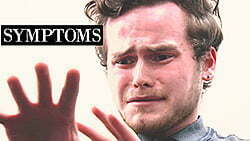
31 Mar Health Anxiety aka Hypochondria
Health Anxiety In Modern Times
As the pandemic continues with no clear end in sight, many of us are struggling to keep our emotions in check. This can especially prove difficult for those who already experience frequent worrying, fear, and generalized tension. Just prior to the pandemic, research showed that reported stress levels have been slowly but steadily increasing across most generations for several years. Coupled with a decline in the number of qualified behavioral health providers, some individuals are feeling more anxious than ever. Worries may surround hot topics like money and career changes. However, the majority of people currently experiencing anxiety report it stems from concern over their health and general well-being. If these worries persist over time, they can cause anyone to develop anxiety about their health. This also leaves people of all ages and walks of life wondering how to stop health anxiety symptoms.
What does it mean to have anxiety about health?
 Health anxiety is also known as hypochondria or health OCD. It’s a behavior that results from a perceived threat to a person’s health. There may be a variety of dangers that a person encounters over the course of their life. These are events such as going to the hospital, getting in an accident, or witnessing violence. Ordinarily, people experience anxiety or fear following any of these real health threats. This is typical behavior that is an evolutionary response designed to keep us safe from danger.
Health anxiety is also known as hypochondria or health OCD. It’s a behavior that results from a perceived threat to a person’s health. There may be a variety of dangers that a person encounters over the course of their life. These are events such as going to the hospital, getting in an accident, or witnessing violence. Ordinarily, people experience anxiety or fear following any of these real health threats. This is typical behavior that is an evolutionary response designed to keep us safe from danger.
Those living with hypochondria experience these same responses. But, they also have difficulty differentiating between a real threat, like poor test results from their doctor, and a perceived threat, such as an isolated headache or nausea. Perceived threats may be as simple as daily aches and pains. Yet a person with health OCD responds to these smaller health events with an anxiety response similar to those triggered by real threats. The most common symptoms of hypochondria are:
- Fearing that you are sick despite having normal test results and no symptoms
- Obsessively browsing the internet for health information
- Persistent worry that interferes with your work, self-care, social life, and productive leisure activities
When someone has anxiety about health, their fears are often regarding major illnesses like dementia, HIV, and cancer. Symptoms can extend to worrying over the health of loved ones, such as their children and parents. Statistics show that health OCD impacts about 4-5% of the population. However, people do not always seek help for this condition, so numbers may be more than double at approximately 12%.
How to manage anxiety about health
 A major part of treatment for hypochondria is education on the physical symptoms of anxiety. These include increased heart rate, dizziness, chest pain, and headaches. Many of these signs are also indications of acute conditions, such as heart attacks and strokes. People may experience heightened anxiety due to fear of these very conditions. Under such circumstances, individuals who want to manage their anxiety about health should track stress levels, recognize their physical signs of stress, and engage in coping strategies to lower their anxiety.
A major part of treatment for hypochondria is education on the physical symptoms of anxiety. These include increased heart rate, dizziness, chest pain, and headaches. Many of these signs are also indications of acute conditions, such as heart attacks and strokes. People may experience heightened anxiety due to fear of these very conditions. Under such circumstances, individuals who want to manage their anxiety about health should track stress levels, recognize their physical signs of stress, and engage in coping strategies to lower their anxiety.
Treatment for health anxiety
 Thankfully, there are a range of treatments to assist people with anxiety about health. Treatment is similar to management for other anxiety disorders. It requires people to work with a behavioral health provider to become more aware of their responses to certain events. People may ask their existing behavioral health provider how to stop health anxiety symptoms. Or, they may seek assistance from a clinician for the first time to address their anxiety about health.
Thankfully, there are a range of treatments to assist people with anxiety about health. Treatment is similar to management for other anxiety disorders. It requires people to work with a behavioral health provider to become more aware of their responses to certain events. People may ask their existing behavioral health provider how to stop health anxiety symptoms. Or, they may seek assistance from a clinician for the first time to address their anxiety about health.
Cognitive behavioral therapy (CBT)
CBT is a superior technique to teach people how to alleviate symptoms. Anxiety sufferers learn and practice gradually decreasing how much time they spend each day preoccupied with these thoughts. With the assistance of a counselor, you can then begin to discuss your current beliefs regarding health and well-being.
This collaborative process will help you develop revised statements that can help you assume a more realistic view of wellness. For example, you are concerned that an aching pain in your leg is the sign of something serious. Try to reframe your thought pattern to acknowledge the fact that sore muscles often result from changes in activity. You can then think back to a time in the past few days when you may have rolled your ankle, sat for a long period of time, or slept on your leg in an awkward position. By consistently countering your beliefs with these new ways of thinking, you can begin adopting healthier habits to go along with them.
Consider professional help
If you find that your traditional ways of managing stress are not working, or you cannot enjoy hobbies and social gatherings like you used to, you should consider consulting a qualified mental health professional to learn how to take back your life from this type of anxiety.
This is post #1 on this topic
We’re very busy helping people improve their mental health, but want to keep providing relevant helpful information to the community. So, we’ve engaged others to help us in writing these articles. We’d love to know which one you like better. Please leave your comments below, or email us your thoughts to our Comments mailbox. Go to post #2 Here. Thanks!




No Comments